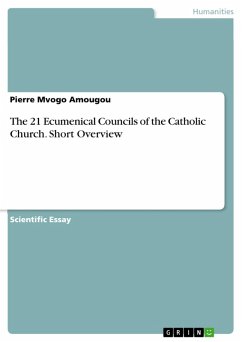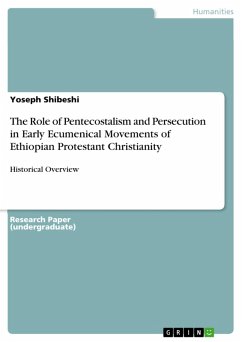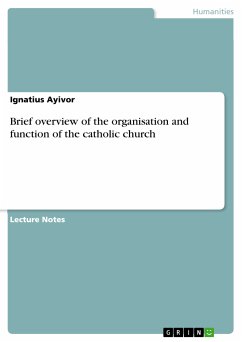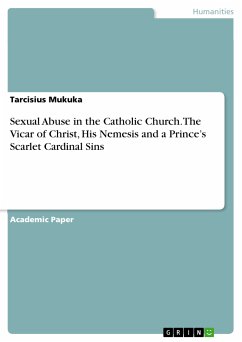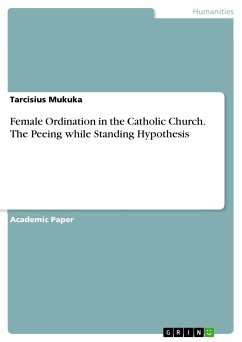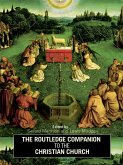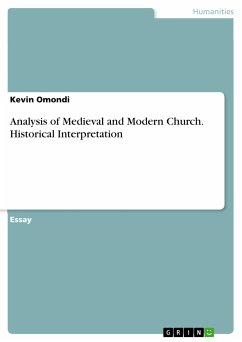Scientific Essay from the year 2018 in the subject Theology - Historic Theology, Ecclesiastical History, grade: note, , course: patristics, language: English, abstract: The following work provides a quick overview over all 21 ecumenical councils as of today held by the Catholic Church. Every several hundred years, cardinals, bishops, priests, theologians and other Catholic leaders, get together under the leadership of the Pope to discuss doctrine and the future of the Church. These are called ecumenical councils. So far, there have been 21 councils in the history of the Church since 325 A.D. (Prior to that, serious persecution prevented widespread meetings. There were, however, less organized councils.) In the Bible we have an example of a Church council (Acts 15-16). Paul and Barnabus went to Jerusalem in Israel to settle the circumcision issue." As they (Paul and Timothy) went through the towns they delivered to the believers the rules decided upon by the apostles and elders in Jerusalem, and they told them to obey those rules." (Acts 16:3) This is a good example of the Lord using the "Church" to decide on matters of interpretation. The councils are part of the glue of the Church and are extremely important because it is where the Church settles many issues about what God is saying in Scripture and what he is saying to his Church. They are also where the Church officially responds to doctrinal threats. Sometimes we hear Evangelicals say something like, "Catholics made up the doctrine of [insert your favorite Catholic doctrine] at such and such a council" when, in truth, the Church was simply officially defining something that it had always believed as a response to a challenge from those opposed to the Catholic doctrine. Catholics believe the Holy Spirit is seriously present, guiding the proceedings at these councils. Jesus said to Peter, "...you are Peter and upon this rock I will build my Church; and the gates of hell shall not prevail against it." Catholics believe that was Jesus' promise that he would protect the Church from doctrinal error. This doctrinal protection is called "infallibility". It does not mean that Catholics leaders throughout history would not be "indefectible" on issues other than doctrine. These councils are called ecumenical because there are several rites in the Catholic Church including the Eastern Rite (Byzantine, Antiochene, Armenian, Chaldean). All of these rights recognize the Pope in Rome as their leader. The largest rite is the Latin-Rite (that's the one most people know).
Dieser Download kann aus rechtlichen Gründen nur mit Rechnungsadresse in A, B, BG, CY, CZ, D, DK, EW, E, FIN, F, GR, HR, H, IRL, I, LT, L, LR, M, NL, PL, P, R, S, SLO, SK ausgeliefert werden.

